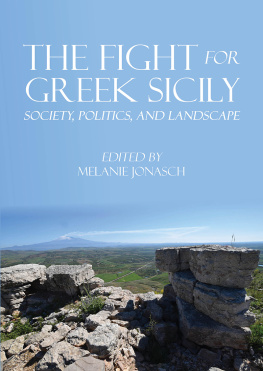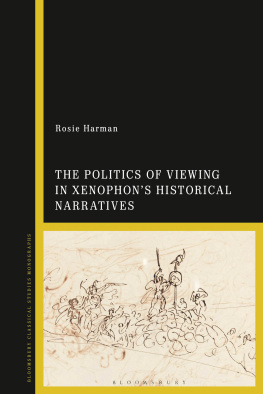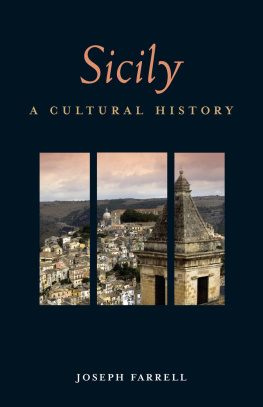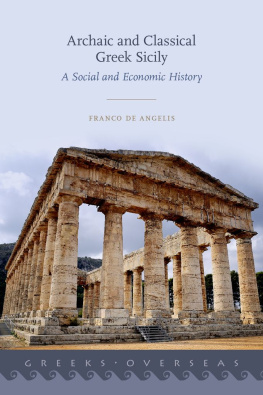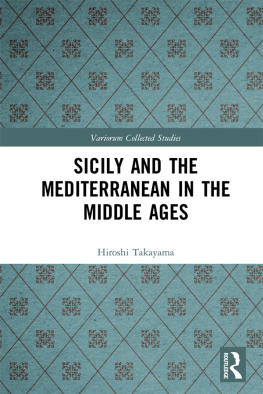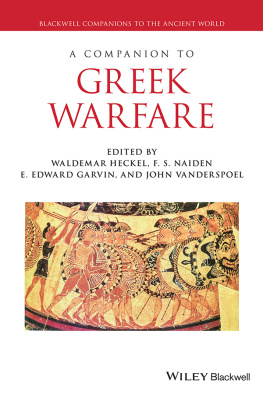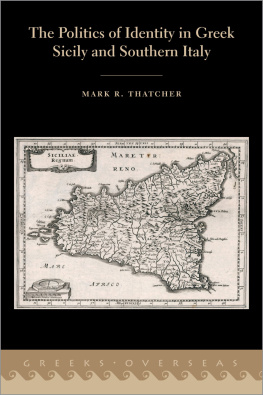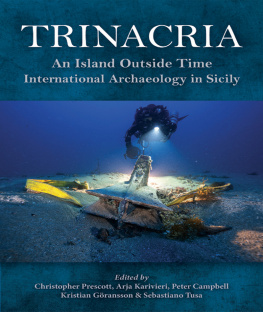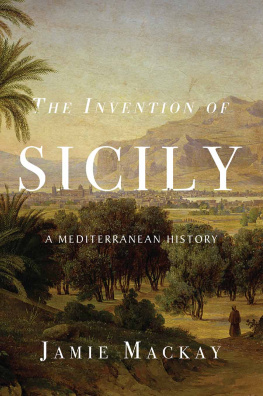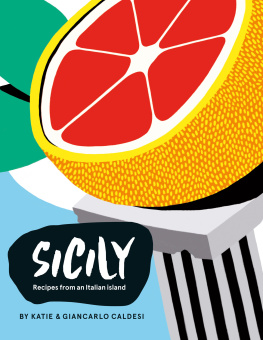Pagebreaks of the print version

The Fight for Greek Sicily
Society, Politics, and Landscape
edited by
Melanie Jonasch
Published in the United Kingdom in 2020 by
OXBOW BOOKS
The Old Music Hall, 106108 Cowley Road, Oxford OX4 1JE
and in the United States by
OXBOW BOOKS
1950 Lawrence Road, Havertown, PA 19083
Oxbow Books and the individual authors 2020
Paperback Edition: ISBN 978-1-78925-356-6
Digital Edition: ISBN 978-1-78925-357-3 (ePub)
Kindle Edition: ISBN 978-1-78925-358-0 (Mobi)
A CIP record for this book is available from the British Library
Library of Congress Control Number: 2020931801
All rights reserved. No part of this book may be reproduced or transmitted in any form or by any means, electronic or mechanical including photocopying, recording or by any information storage and retrieval system, without permission from the publisher in writing.
For a complete list of Oxbow titles, please contact:
| UNITED KINGDOM | UNITED STATES OF AMERICA |
| Oxbow Books | Oxbow Books |
| Telephone (01865) 241249 | Telephone (610) 853-9131, Fax (610) 853-9146 |
| Email: | Email: |
| www.oxbowbooks.com | www.casemateacademic.com/oxbow |
Oxbow Books is part of the Casemate Group
Front cover: View over the plain of Catania towards Mt Etna from the Greek military outpost on Monte Turcisi ( M. Jonasch).
Back cover: Tower and doorway of the Greek fortress on Monte Turcisi ( M. Jonasch).
Acknowledgements
This book originates from a workshop entitled War and Society in Colonial Sicily (WASICS) held at the University of British Columbia in Vancouver from 2729 April, 2018. The event was funded by the Volkswagen Foundation in the framework of a Postdoctoral Fellowship in the Humanities that I held during the academic year 201718. I am deeply grateful for the generous financial support of my studies, the inspiring workshop and the present book.
My gratitude extends to the colleagues at the Department of Classical, Near Eastern and Religious Studies of the University of British Columbia for providing the space and fertile environment, both for my personal research and for the conduct of the workshop. Heartfelt thanks go to Franco De Angelis and his family, who offered a warm welcome to Vancouver and repeated advice and support, not least concerning the implementation of the workshop. It is, in large part, due to his interest and enthusiasm that we extended the workshop theme beyond the mere presentation of military architecture and landscape to social and political aspects.
I am particularly grateful to the workshop participants, who did not shrink from the exertions of a long journey to Vancouver, a place of outstanding beauty yet geographically distant from our common field of research. This enthusiasm and dedication to our shared interest, ancient Sicily, was also evident and the guiding principle during the three days on the Pacific west coast. It generated rich discussion and fruitful exchange beyond the boundaries of the subject area, scientific approach, and stage of career.
Our interaction also benefitted from the participation of Katharine Huemoeller (UBC), Matthew McCarty (UBC) and James Horncastle (SFU), who kindly agreed to chair sessions. Roger Wilson, Professor Emeritus at the University of British Columbia and a leading expert on ancient Sicily, had left for fieldwork by the time of the workshop but kindly shared his insights and experiences on other occasions.
There was broad consensus about making the rich and complementary contributions of the workshop available as a book. To enhance the range of expertise and evidence, we also invited selected researchers to complement some of the original papers. I warmly thank Lisa Irene Hau, Holger Baitinger and Massimo Frasca for having taken up this challenge, as well as Stefania De Vido who agreed to provide a final meditation on the topic and material presented in the essays.
For the reviewing process we had precious help from many anonymous experts, as well as from Pier Giovanni Guzzo, Erich Kistler and Philip Sapirstein. I thank my colleagues from the German Archaeological Institute in Athens and Rome, as well as Diego Barucco and Luigi Nifos, who provided photographic material. Finally, I owe a particular debt to Judy Barringer, Valentina Mignosa, Jason Harris, and Andrew Ward for their tireless commitment to the linguistic quality of the book.
Melanie Jonasch
German Archaeological Institute, Berlin
Abbreviations
| ANS | The American Numismatic Society |
| BTCGI | Nenci, C. and Vallet, G. (19772012) Bibliografia topografica della colonizzazione greca in Italia e nelle isole tirreniche , 21 vols. Pisa, Scuola Normale Superiore. |
| CIL | Corpus Inscriptionum Latinarum (1863) |
| CIS | Corpus Inscriptionum Semiticarum (1881) |
| CNS | Corpus Nummorum Siculorum (1983) |
| FGrH | Jacoby, F. Fragmente der griechischen Historiker (1923) |
| HCT | Gomme, A.W., Andrewes, A. and Dover, K.J. (19451981) A Historical Commentary on Thucydides , 5 vols. Oxford, Clarendon Press |
| IC | Guarducci, M. (ed.) (19351950), Inscriptiones Creticae , 4 vols. Roma, Libreria dello Stato |
| IG | Inscriptiones Graecae (1873) |
| IParK | Thr, G. and Taeuber H. (1994), Prozessrechtliche Inschriften der griechischen Poleis: Arkadien. Wien, sterreichische Akademie der Wissenschaften |
| LSJ | Liddell, H.G. and Scott, R. (19251940), Greek English Lexicon , 9th edn, rev. and aug. Oxford, Clarendon Press |
| POxy | Oxyrhynchus Papyri (1898) |
| SEG | Supplementum Epigraphicum Graecum (1923) |
| SNG | Sylloge Nummorum Graecorum (1930) |
| ThesCRA | Thesaurus Cultus et Rituum Antiquorum , IV + index vol. (20042006) |
Preface: word of welcome
This volume has its origins in an international workshop called War and Society in Colonial Sicily held at the Vancouver campus of the University of British Columbia on 2729 April, 2018. Many of the participants were first-time visitors to Vancouver and so the excitement of both the workshop and the dramatic setting of this Pacific Rim city made the event memorable.
But the workshop and its location have more in common than simply being linked together by the present writer hosting the organiser (now editor of this volume) who held a Volkswagen Foundation Postdoctoral Fellowship. At first glance, Sicily and British Columbia seem incomparable. However, Sicily and British Columbia have long been places of cultural encounters and frontiers and have similarly witnessed periods of colonialism and imperialism, along with all of their inevitable consequences. Both landmasses have much coastline, touched by large and important bodies of water. Both hold sought-after natural resources, making them geopolitically strategic for this reason. In British Columbias case, two contemporary mid-19th-century developments set this dynamic into motion. First, Captain Sir John Franklins failed Artic Expedition of the late 1840s tried to find the so-called North-west Passage, a shortcut by sea to the east. Its tragic failure sent shockwaves throughout the British Empire. Second was the discovery of gold in the 1850s. Together these developments heightened the need for a swift and reliable line of communication between British Columbia and the rest of Canada. Attention turned to the creation of a railway. Settler colonists were now needed to fill the vast landmass to maintain a sovereign presence against the encroachment of the United States of America and Russia, interested in squeezing out the British Empire from this gold-rich Pacific North-west and the lucrative base it offered for trade with the east (and thus securing it for a Canada that shortly gained its independence in 1867).

